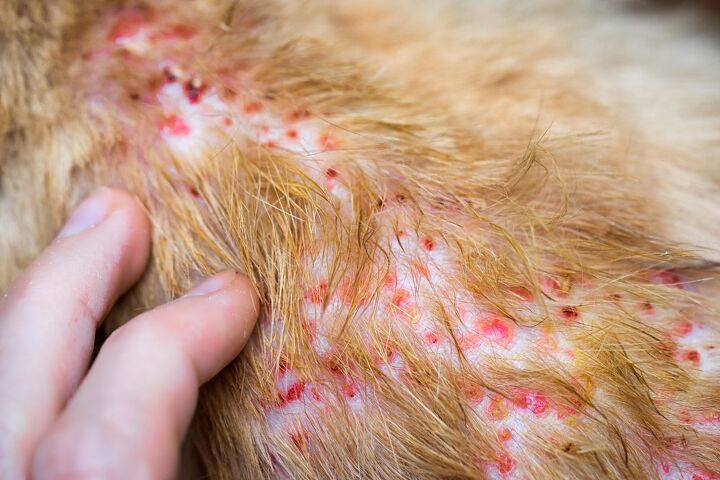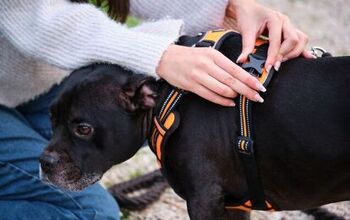What Is Dog Folliculitis and How to Treat It?

Folliculitis in dogs is a disease which causes infection or inflammation of hair follicles. It is one of the more common skin diseases amongst dogs and is caused by bacteria, fungal infections, skin irritations, or parasites. What is more, it can affect dogs of all ages, sizes, and breeds, so if it happens to your four-legged friend unexpectedly, it is best to know how to treat this pesky skin issue.
What Is Dog Folliculitis?
The symptoms and causes of dog folliculitis can vary. In most cases, the healthy follicle is “compromised”, which leads to the accumulation of bacteria that are otherwise normally found on your pet’s skin. The end result is great discomfort for your dog, and it should be treated as quickly as possible. But how will you know that it is dog folliculitis and not some other health issue?
Well, one of the foremost symptoms to look out for is red and inflamed skin. This condition causes excessive redness and even swelling in certain areas of the skin. This should be a telltale sign that something is amiss. Together with this, you could notice pimples, also known as pustules. They are small raised bumps and often contain pus.
Of course, your dog will show signs of discomfort as well. They will try to itch and lick the affected areas, in hopes of relieving the discomfort and making themselves more comfortable. This can all be accompanied by hair loss, mostly in the directly affected areas of your dog’s coat and skin. Ultimately, in the most severe cases, open sores, scabs, and skin lesions may appear. At this point, veterinary care is needed immediately.
If you suspect your dog has folliculitis, it's crucial to consult with a veterinarian as soon as possible. They can perform diagnostic tests, such as skin scrapings or cultures, to identify the specific cause and recommend an appropriate treatment plan. It is crucial that you do not attempt any solution on your own. Self-diagnosis and do-it-yourself treatment can lead to complications or ineffective outcomes, so professional guidance is essential. Based on the evaluation, your vet can introduce a number of treatments and solutions – here’s what to expect.
How Is Dog Folliculitis Treated?
Topical antibiotics and antifungal creams are the most common treatment options. They are applied directly to the affected areas and are most efficient in early and moderate cases of dog folliculitis. Of course, if the case with your dog is more serious, your vet could propose an oral treatment. This consists of special medications that work to eliminate the infection at the core.
Another possible solution is using special medicated shampoos that work to heal the follicles through gentle washing.
It goes without saying that you should maintain your pet’s good hygiene, in order to prevent folliculitis from ever appearing in the first place. Regular grooming, baths, and brushing will ensure that your pet’s coat and skin are in top state. To that end, it would be best to use a special shampoo that soothes and maintains the quality of your dog’s skin. And not only that but investing in a quality dog grooming kit can be a great benefit as well. Such a kit can make grooming sessions so much easier, and ensure that you have no struggles maintaining your pet’s hygiene. It can also save you a few dollars if you can’t afford to go to the grooming salons.
Ultimately, it all boils down to good hygiene – an ounce of prevention is worth a pound of cure, as they say. You should always ensure that your pet is clean and that their coat is brushed and trimmed. Neglect this, and you can quickly face a number of issues. From matted hair to itches and rashes, and all the way to skin infections and dog folliculitis.

A proud mama to seven dogs and ten cats, Angela spends her days writing for her fellow pet parents and pampering her furballs, all of whom are rescues. When she's not gushing over her adorable cats or playing with her dogs, she can be found curled up with a good fantasy book.
More by Angela Vuckovic

























